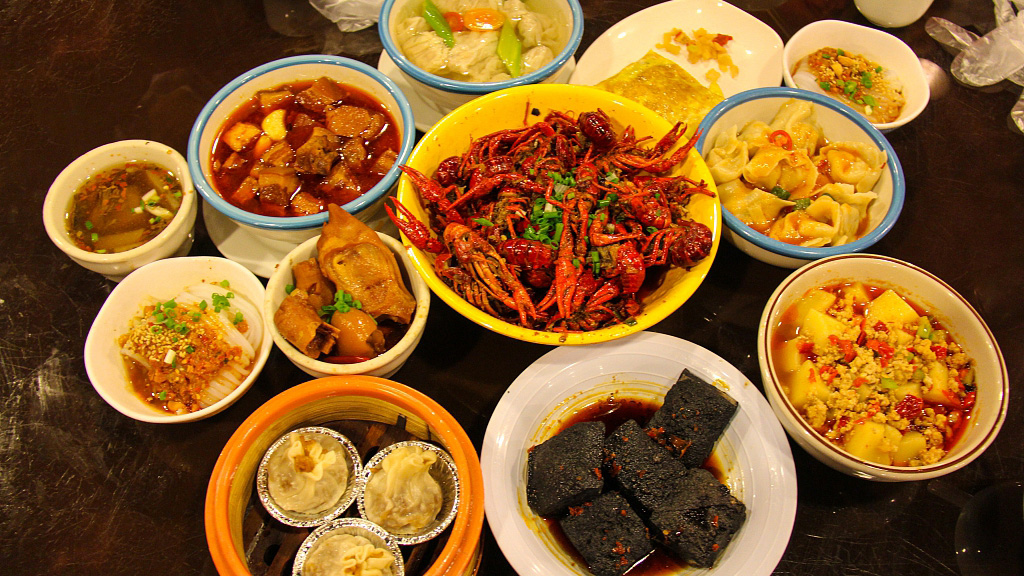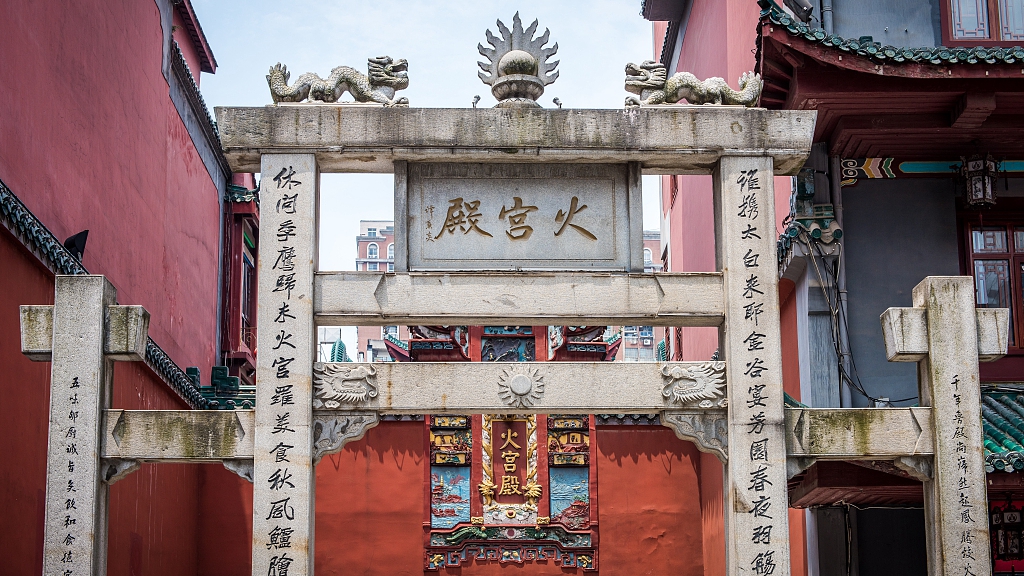03:03

China is one of the largest and most competitive restaurant markets in the world, with a total size of 4.6 trillion yuan ($713 billion) scattered in some 11 million businesses.
Changsha, an ancient city dating back to 2,400 years ago, is the destination of choice for many famous food brands. There is something that is uniquely attractive in the city for food entrepreneurs.
Fire God Palace, a restaurant located in downtown Changsha, bears a long history.
As early as the 1920s, it was a famous local teahouse where tea drinkers could enjoy traditional storytelling while sipping tea.
Today, it is an extremely popular attraction that integrates traditional folk culture, fire temple culture and food culture. It is also well known as a "Chinese time-honored" enterprise, where you can find a variety of Hunan snacks, such as Changsha stinky tofu, stewed pork with brown sauce, and glutinous rice cakes.

Fire God Palace, a restaurant located in downtown Changsha, bears a long history. /CFP
Fire God Palace, a restaurant located in downtown Changsha, bears a long history. /CFP
"Fire God Palace's traditional snacks originated from folklore. They have more than 200 different varieties with rich, unique characteristics," said Tang Zhuqing, assistant general manager of Fire God Palace.
Food is an indispensable part of the culture in Hunan. There are eight traditional snacks, including fried stinky tofu.
Each of these traditional snacks is made in a unique manner and it is also an extremely popular attraction for local people and tourists. Still, merchants are continuing to develop products for Generation Z consumers, especially those who desire high-quality food products.
On top of traditional food, Changsha food brands like Wenheyou, Sexy Tea and Jinzai have also undergone a transformation to meet the needs of younger customers. Jinzai, considered a first-choice fish snack, has taken several steps in this regard.
"Jinzai tries to retain the authentic local flavors and utilize industry-leading intelligent production processes and technology to diversify and grow offline and online businesses," said Zhou Jinsong, chairman of Jinzai Food Group.
Last year, the company's online revenue was 169 million yuan, accounting for some 18 percent of the total, up almost 45 percent on an annual basis.
In 2020, Jinzai sold 1.3 billion bags of deep-sea fish, and it has ranked first in the industry for three consecutive years. By June, Jinzai products were available all over China and also exported to France, Britain, Japan and 30 other countries.
This is Changsha's unique food culture. The fusion of traditional and modern provides more possibilities for people to enjoy their lives in the city.

